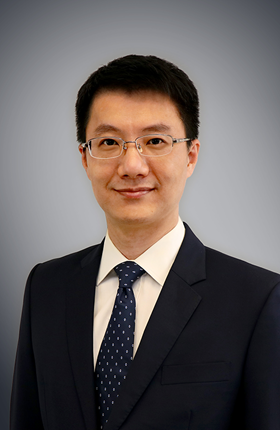
Prof. Zijian ZHENG
Chair Professor of Soft Materials and Devices, Department of Applied Biology and Chemical Technology, Faculty of Science; Associate Director of Research Institute for Intelligent Wearable Systems
The Hong Kong Polytechnic University
Biography
Prof. Zijian Zheng is currently Chair Professor of Soft Materials and Devices at the Department of Applied Biology and Chemical Technology, Associate Director of Research Institute for Intelligent Wearable Systems, Lead Investigator of Research Institute for Smart Energy at The Hong Kong Polytechnic University (PolyU). His research interests include surface and polymer science, nanofabrication, flexible and wearable electronics, energy conversion and storage. Prof. Zheng received his B. Eng. in Chemical Engineering at Tsinghua University in 2003, PhD in Chemistry at University of Cambridge in 2007, and postdoctoral training at Northwestern University in 2008-2009. He joined PolyU as Assistant Professor in 2009, and was promoted to tenured Associate Professor in 2013 and then Professor in 2017. He has published more than 190 papers in journals such as Science, Nat. Mater., Nat. Comm., Adv. Mate., JACS, Angew. Chem.. He also files 40+ patents and is recipient of more than 15 academic awards. He serves as Guest Editor of Advanced Materials and Small, and Editor-in-Chief of EcoMat, a flagship open-access journal in green energy and environment published by Wiley. He is Founding Member of The Young Academy of Sciences of Hong Kong (2018), Chang Jiang Chair Professor by the Ministry of Education of China (2020), and Senior Research Fellow of the University Grant Commission of Hong Kong (2021).
Textile Composite Electrodes for Extreme-Flexible Batteries and Beyond
Abstract
Wearable energy storage devices are indispensable cornerstones for future wearable electronics. Current energy storage technologies are based on materials and devices that are rigid, bulky, and heavy, making them difficult to wear. On the other hand, fibers are flexible and lightweight materials that can be assembled into different textiles and have been worn by human beings for thousands of years. Different from conventional two-dimensional thin films and foils, the three-dimensional fiber and textile structures not only provide superior wearing ability, but also much larger surface areas. This talk will introduce how our research group makes use of the attributes of fibers for high-performance wearable energy storage devices. We will demonstrate the strategies and discuss the perspectives to modify fibers and textiles for making wearable capacitors and batteries with excellent mechanical durability, electrochemical stability, and high energy/power density. We will also show that the fibrous materials can significantly enhance the stability and energy density of batteries for wearable applications and others such as Na batteries.


